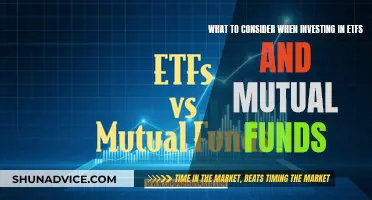
Index funds are a type of mutual fund that aims to mirror the performance of a stock market index, such as the Nifty50, the BSE Sensex, or the Nasdaq. They are passively managed, meaning they have lower management fees than actively managed funds, and are ideal for investors seeking stability and lower risk. In India, Upstox offers a range of mutual funds, including index funds, and provides a simple process for investors to get started. Using the Upstox app, investors can explore various investment ideas, select a mutual fund, and place a Mutual Fund SIP order in a few easy steps.
| Characteristics | Values |
|---|---|
| Description | Index funds are a type of mutual fund that aims to mirror the performance of a market index, such as the Nifty50, the BSE Sensex, or the Nasdaq. |
| Differences from non-index funds | Lower management expense, not managed by a highly-expert money manager, simply replicate the market's performance. |
| Advantages | Safer than non-index funds, can outperform actively-managed funds, lower costs. |
| Investment process | Open a Demat account, choose a mutual fund, and use an online investing platform provided by a broker. |
| Upstox app process | Log in, navigate to the 'Mutual Fund' section, explore 'Investment ideas', select a fund, choose a SIP amount, set a date, review and proceed to payment, make an initial payment. |
What You'll Learn

Index funds vs non-index funds
Index funds are a type of mutual or exchange-traded fund (ETF) that tracks the performance of a market index, such as the S&P 500, by holding the same stocks or bonds or a representative sample of them. They are defined as investments that mirror the performance of benchmarks by mimicking their makeup. Index funds are passively managed, which means that they closely replicate the performance of an index rather than trying to beat it. This results in lower costs for the investor.
Non-index funds, also known as actively managed funds, are managed by fund managers who actively pick securities or time the market in an attempt to beat the market returns. These funds have higher management fees due to the active management and larger staffs required.
Management Fees: Index funds have lower management fees since they are passively managed and do not require active fund management. Non-index funds have higher management fees to cover the cost of active fund management.
Performance: Index funds aim to match the returns of the underlying market index, while non-index funds aim to beat the market returns. On many occasions, index funds can outperform actively-managed funds, especially in booming economies.
Risk: Index funds are considered safer than non-index funds because they provide investors with market exposure and stability. However, they are not without risks, as they will perform poorly if the overall market performs poorly. Non-index funds may underperform the market but can also provide better returns if the fund manager's active strategies pay off.
Diversification: Index funds provide broad market exposure and diversification across various sectors and asset classes. Non-index funds may provide more targeted investments in specific sectors or industries.
Flexibility: Non-index funds offer more flexibility as they can pivot away from the market if it shifts. Index funds, on the other hand, are designed to mirror a specific market and may lack the flexibility to adapt to changing market conditions.
Tax Efficiency: Index funds are generally more tax-efficient than non-index funds due to their lower portfolio turnover, resulting in fewer taxable events for investors.
In summary, index funds offer a simple, low-cost way to gain exposure to a diversified portfolio, making them attractive to investors who are risk-averse or prefer a passive investment strategy. Non-index funds, on the other hand, provide the potential for higher returns but come with higher fees and may underperform the market. The choice between index funds and non-index funds depends on an investor's financial goals, risk tolerance, and investment preferences.
How to Reinvest Dividends with Chase You Invest Mutual Funds
You may want to see also

Advantages of index funds
Index funds are a passive investment method achieved by investing in an index fund. An index fund is a fund that seeks to generate returns by tracking an index. The S&P 500 is the most popular index to track.
Index funds are a great investment option, offering several advantages, including:
Low Costs
Index funds have lower management fees than actively managed funds because they take a passive approach to tracking an index. They also have lower transaction costs as they hold investments until the index itself changes, which doesn't happen frequently. These lower costs can make a significant difference in your returns over time.
Requires Little Financial Knowledge
Index investing is relatively easy compared to building your own portfolio from scratch. Index funds contain hundreds of stocks that would be challenging to replicate at an individual level.
Convenience
Index funds provide convenience as they require less active management. They closely replicate the performance of an index rather than trying to beat it, so fund managers have a smaller role, which translates to lower costs for investors.
Diversification
Index funds hold a large array of stocks, providing diversification and reducing idiosyncratic (firm-specific) risk. They can consist of companies across various industries or multiple companies within a specific industry sector, allowing for a diversified portfolio without the need to monitor multiple companies.
Outperform Actively Managed Funds
Index funds can sometimes outperform actively managed funds, especially in booming economies. This is because actively managed funds have higher running costs due to the involvement of expert analysts, which increases operating fees.
While index funds offer these advantages, it's important to remember that they also have some drawbacks, such as a lack of downside protection and the inability to beat the market.
High-Speed Trading Funds: Strategies for Smart Investing
You may want to see also

How to open a Demat account
To open a Demat account, you must create an account with a Depository Participant (DP). This can be done through online or offline methods. Here is a step-by-step guide to opening a Demat account online:
Step 1: Choose a DP website that is safe and secure.
Step 2: On the DP website, select the 'Open Demat Account' option and follow the on-screen instructions.
Step 3: Fill out the online Demat account opening form with the required information, such as your phone number, email address, etc. You will also need to provide your PAN card details.
Step 4: You will receive a one-time OTP to the phone number you provided.
Step 5: Submit the required documents for Demat account opening, including proof of identity and address, such as a passport, driving licence, voter ID, utility bills, etc. You will also need to provide bank details such as account number, account type, and IFSC code.
Step 6: Complete the E-KYC process and digitally authenticate your KYC information.
Step 7: You will receive your Demat account number and login credentials.
If you choose to open a Demat account offline, the process is similar but requires submitting physical copies of the required documents to your chosen DP. You will also need to sign and submit a contract detailing the requirements, limitations, and rights related to having a Demat account. The DP will then provide you with a unique Client ID and instruction sheets for accessing your account and utilising depository services.
Mutual Funds: When to Start Investing for Maximum Returns
You may want to see also

Index funds on the Upstox app
Index funds are a type of mutual fund that pools investors' money and invests it in a portfolio that mirrors a market index, such as the Nifty50, the BSE Sensex, or the Nasdaq. The fund's performance moves in parallel with the market index it tracks. Index funds have lower management expenses because they are passively managed, aiming to replicate the performance of the index rather than trying to beat it. This results in lower costs for investors, as a smaller percentage of their investment goes towards paying overheads.
Upstox offers the ability to invest in index funds through its app. Here is a step-by-step guide on how to invest in index funds using the Upstox app:
- Log in to the Upstox app and navigate to the 'Mutual Fund' section. The location of this section depends on whether you are on the 'Upstox - For investors' or 'Upstox - For traders' tab.
- Click on 'Explore' to view investment ideas, such as Invest Globally, All Weather Investing, and Invest In Gold. These suggestions can help you select an index fund for investment.
- Select the desired index fund and tap on 'SIP'.
- Choose the SIP amount by either selecting from the provided options or manually entering a custom amount.
- Select a date for your SIP.
- Review your SIP order details and proceed to payment. You can also view stamp duty charges under 'View tax & charges'.
- Make the initial payment to start the SIP via Net Banking or UPI. The funds will be deducted from your registered bank account.
- Set up AutoSIP to ensure future SIP payments go through automatically. This requires email verification and selection of a verification mode (NetBanking or Debit Card).
- Review the details of the mandate on the Mandate Approval Automation page.
- Once your AutoSIP request is confirmed, your bank will notify BSE, and the mandate will reflect on Upstox.
It is important to note that while index funds offer lower costs and mirror the performance of the market index, they are not without risks. It is recommended to do your own research and consult an investment advisor before making any investment decisions.
Loaded Fee Mutual Funds: When to Invest and Why
You may want to see also

Index funds vs the stock market
Index funds are a type of mutual or exchange-traded fund (ETF) that tracks the performance of a market index, such as the S&P 500, by holding the same stocks or bonds or a representative sample of them. Index funds are defined as investments that mirror the performance of benchmarks like the S&P 500 by mimicking their makeup. These passive investments are ideal for investors who are not comfortable taking risks in the equity market and are looking for stability.
Index Funds vs. the Stock Market
When comparing index funds to the stock market, there are several key differences and similarities to consider:
- Management: Index funds are passively managed, meaning they aim to replicate the performance of a specific index rather than trying to beat it. In contrast, stock market investments are often actively managed, with fund managers attempting to outperform the market.
- Diversification: Index funds provide broad market exposure and diversification across various sectors and asset classes, depending on their underlying index. While individual stocks may rise and fall, indexes tend to rise over time. Investing in an index fund reduces the risk of losing money in a single investment that sinks while the market is performing well.
- Costs: Index funds typically have lower costs than actively managed funds. They have lower expense ratios because they are passively managed, and they trade as little as possible to keep costs low. Actively managed funds, on the other hand, have larger staffs and conduct more trades, driving up costs.
- Performance: Index funds have often outperformed actively managed funds over the long term, especially after accounting for fees and expenses. According to the S&P Indices Versus Active (SPIVA) scorecards, about 9 out of 10 actively managed funds didn't match the returns of the S&P 500 benchmark in the past 15 years.
- Risk: Index funds are generally considered safer than individual stocks due to their inherent diversification. However, they are not without risk. Index funds decline in value when the market does and lack the flexibility to pivot to different investments when the market shifts.
- Suitability: Index funds are a good option for beginners as they are a simple, cost-effective way to hold a broad range of stocks or bonds. They are also suitable for long-term investors, such as those saving for retirement, as they provide solid returns over time.
In summary, index funds offer a low-cost, diversified investment option that mirrors the performance of a specific market index. They are a passive investment strategy that can provide stability and solid returns, making them a popular choice for investors who are risk-averse or seeking long-term growth. However, it's important to note that index funds lack the flexibility of active management and can underperform during prolonged market downturns.
Emerging Markets: Where to Invest and Why
You may want to see also
Frequently asked questions
Index funds are a type of mutual fund that aims to mirror the performance of a particular market index, such as the Nifty50, the BSE Sensex, or the Nasdaq. They provide a more stable investment option, as they are not actively managed and have lower management fees.
To invest in index funds through Upstox, you need to follow these steps:
- Open a FREE Demat + Trading account on Upstox.
- Log in to the Upstox app and navigate to the 'Mutual Fund' section.
- Explore the 'Investment ideas' to select a Mutual Fund for your investment.
- Choose the fund and decide on the amount and date of your Systematic Investment Plan (SIP).
- Review your SIP order details and proceed to payment.
- Make the initial payment via Net Banking or UPI.
Index funds offer several advantages over other types of investments:
- Lower management expenses: Index funds are passively managed, replicating the performance of a market index, which reduces management fees.
- Stability and lower risk: Index funds provide stability and are ideal for investors who are risk-averse or uncomfortable with taking risks in the equity market.
- Diversification: Index funds invest in a diverse range of companies across industries, reducing the risk associated with individual stocks.
- Potential for higher returns: Index funds can sometimes outperform actively-managed funds, especially in booming economies.







